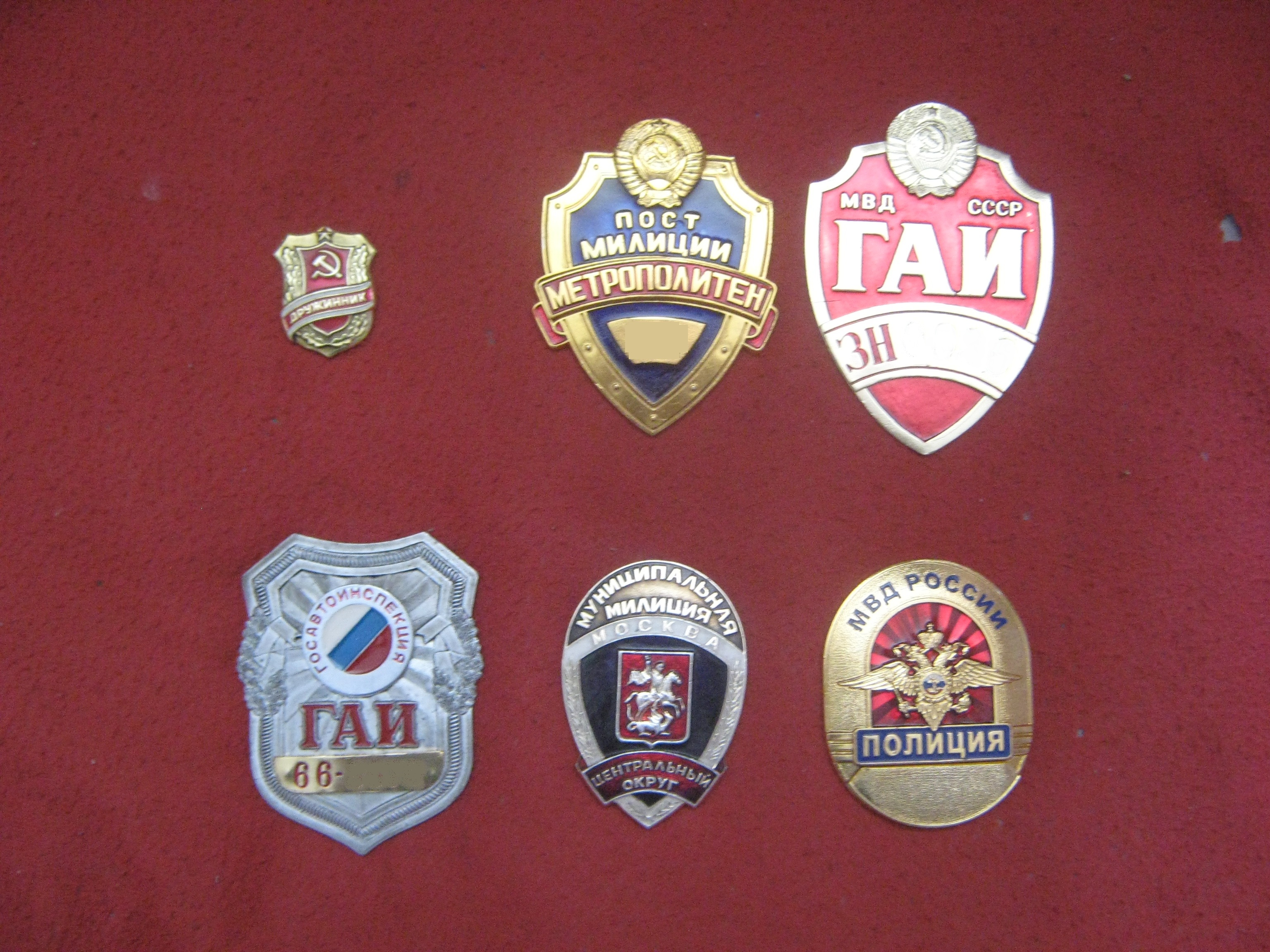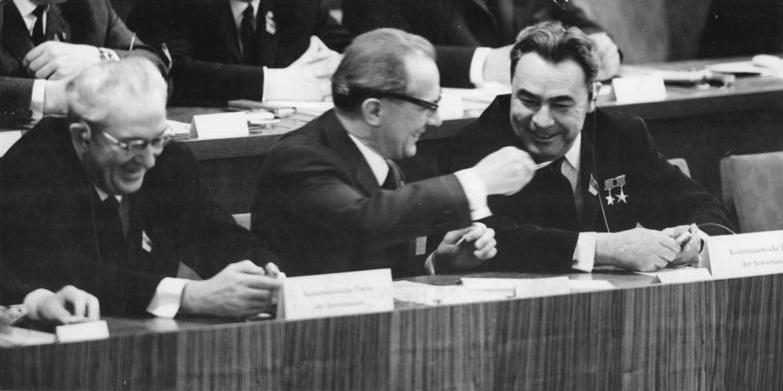|
Viktor Ilyin
Viktor Ivanovich Ilyin (Russian: Ви́ктор Ива́нович Ильи́н; born 26 December 1947) is a Soviet Army deserter who, at the rank of second lieutenant, attempted to assassinate the Soviet leader, Leonid Brezhnev on 22 January 1969 in Moscow. Biography Ilyin was born in Leningrad on 26 December 1947. He was less than two years old when he was taken away from his alcoholic parents and grew up in a foster family. He entered a topographical technical school and desired to become a geologist. However, after travelling to many different regions, a "depressing impression" was left on him of "poverty, drunkenness, devastation" - different to what Soviet television showed. As a result, he drafted a reform plan which included a monthly payment to each citizen from natural resource sales, which he sent to the Kremlin, but did not receive a response. He said that was when he decided to kill Brezhnev so that everyone would know of his ideas, where he planned to speak abou ... [...More Info...] [...Related Items...] OR: [Wikipedia] [Google] [Baidu] |
Saint Petersburg
Saint Petersburg ( rus, links=no, Санкт-Петербург, a=Ru-Sankt Peterburg Leningrad Petrograd Piter.ogg, r=Sankt-Peterburg, p=ˈsankt pʲɪtʲɪrˈburk), formerly known as Petrograd (1914–1924) and later Leningrad (1924–1991), is the second-largest city in Russia. It is situated on the Neva River, at the head of the Gulf of Finland on the Baltic Sea, with a population of roughly 5.4 million residents. Saint Petersburg is the fourth-most populous city in Europe after Istanbul, Moscow and London, the most populous city on the Baltic Sea, and the world's northernmost city of more than 1 million residents. As Russia's Imperial capital, and a historically strategic port, it is governed as a federal city. The city was founded by Tsar Peter the Great on 27 May 1703 on the site of a captured Swedish fortress, and was named after apostle Saint Peter. In Russia, Saint Petersburg is historically and culturally associated with t ... [...More Info...] [...Related Items...] OR: [Wikipedia] [Google] [Baidu] |
Soviet Militia
''Militsiya'' ( rus, милиция, , mʲɪˈlʲitsɨjə) was the name of the police forces in the Soviet Union (until 1991) and in several Eastern Bloc countries (1945–1992), as well as in the non-aligned SFR Yugoslavia (1945–1992). The term continues in common and sometimes official usage in some of the individual former Soviet republics such as Belarus, Tajikistan, Uzbekistan and Kyrgyzstan, as well as in the partially recognised or unrecognised republics of Abkhazia, South Ossetia, Transnistria, DNR and LNR. Name and status The name ''militsiya'' as applied to police forces originates from a Russian Provisional Government decree dated April 17, 1917, and from early Soviet history: both the Provisional Government and the Bolsheviks intended to associate their new law-enforcement authority with the self-organisation of the people and to distinguish it from the czarist police. The militsiya was reaffirmed in Russia on October 28 (November 10, according to the ne ... [...More Info...] [...Related Items...] OR: [Wikipedia] [Google] [Baidu] |
Soviet People
Soviet people ( rus, сове́тский наро́д, r=sovyétsky naród), or citizens of the USSR ( rus, гра́ждане СССР, grázhdanye SSSR), was an umbrella demonym for the population of the Soviet Union. Nationality policy in the Soviet Union During the history of the Soviet Union, different doctrines and practices on ethnic distinctions within the Soviet population were applied at different times. Minority national cultures were never completely abolished. Instead the Soviet definition of national cultures required them to be "socialist by content and national by form", an approach that was used to promote the official aims and values of the state. The goal was always to cement the nationalities together in a common state structure. In the 1920s and the early 1930s, the policy of national delimitation was used to demarcate separate areas of national culture and the policy of korenizatsiya (indigenisation) was used to promote federalism and strengthen non-Russia ... [...More Info...] [...Related Items...] OR: [Wikipedia] [Google] [Baidu] |
Failed Assassins
Failure is the state or condition of not meeting a desirable or intended objective, and may be viewed as the opposite of success. The criteria for failure depends on context, and may be relative to a particular observer or belief system. One person might consider a failure what another person considers a success, particularly in cases of direct competition or a zero-sum game. Similarly, the degree of success or failure in a situation may be differently viewed by distinct observers or participants, such that a situation that one considers to be a failure, another might consider to be a success, a qualified success or a neutral situation. It may also be difficult or impossible to ascertain whether a situation meets criteria for failure or success due to ambiguous or ill-defined definition of those criteria. Finding useful and effective criteria, or heuristics, to judge the success or failure of a situation may itself be a significant task. In American history Cultural histor ... [...More Info...] [...Related Items...] OR: [Wikipedia] [Google] [Baidu] |
Living People
Related categories * :Year of birth missing (living people) / :Year of birth unknown * :Date of birth missing (living people) / :Date of birth unknown * :Place of birth missing (living people) / :Place of birth unknown * :Year of death missing / :Year of death unknown * :Date of death missing / :Date of death unknown * :Place of death missing / :Place of death unknown * :Missing middle or first names See also * :Dead people * :Template:L, which generates this category or death years, and birth year and sort keys. : {{DEFAULTSORT:Living people 21st-century people People by status ... [...More Info...] [...Related Items...] OR: [Wikipedia] [Google] [Baidu] |
Insane
Insanity, madness, lunacy, and craziness are behaviors performed by certain abnormal mental or behavioral patterns. Insanity can be manifest as violations of societal norms, including a person or persons becoming a danger to themselves or to other people. Conceptually, mental insanity also is associated with the biological phenomenon of contagion (that mental illness is infectious) as in the case of copycat suicides. In contemporary usage, the term ''insanity'' is an informal, un-scientific term denoting "mental instability"; thus, the term insanity defense is the legal definition of mental instability. In medicine, the general term psychosis is used to include the presence either of delusions or of hallucinations or both in a patient; and psychiatric illness is " psychopathology", not ''mental insanity''. An interview with Dr. Joseph Merlino, David Shankbone, ''Wikinews'', 5 October 2007. In English, the word "sane" derives from the Latin adjective ''sanus'' meaning "heal ... [...More Info...] [...Related Items...] OR: [Wikipedia] [Google] [Baidu] |
Mikhail Suslov
Mikhail Andreyevich Suslov (russian: Михаи́л Андре́евич Су́слов; 25 January 1982) was a Soviet statesman during the Cold War. He served as Second Secretary of the Communist Party of the Soviet Union from 1965, and as unofficial chief ideologue of the party until his death in 1982. Suslov was responsible for party democracy and power separation within the Communist Party. His hardline attitude resisting change made him one of the foremost orthodox communist Soviet leaders. Born in rural Russia in 1902, Suslov became a member of the All-Union Communist Party (Bolsheviks) in 1921 and studied economics for much of the 1920s. He left his job as a teacher in 1931 to pursue politics full-time, becoming one of the many Soviet politicians who took part in the mass repression begun by Joseph Stalin's regime. He was made First Secretary of Stavropol Krai administrative area in 1939. During World War II, Suslov headed the local Stavropol guerrilla movement. After t ... [...More Info...] [...Related Items...] OR: [Wikipedia] [Google] [Baidu] |
Yuri Andropov
Yuri Vladimirovich Andropov (– 9 February 1984) was the sixth paramount leader of the Soviet Union and the fourth General Secretary of the Communist Party of the Soviet Union. After Leonid Brezhnev's 18-year rule, Andropov served in the post from November 1982 until his death in February 1984. Earlier in his career, Andropov served as the Soviet ambassador to Hungary from 1954 to 1957, during which time he was involved in the suppression of the 1956 Hungarian Uprising. He was named chairman of the KGB on 10 May 1967. In this position, he oversaw a massive crackdown on dissent carried out via mass arrests and involuntary psychiatric commitment of people deemed "socially undesirable". After Brezhnev suffered a stroke in 1975 that impaired his ability to govern, Andropov effectively dominated policy-making alongside Foreign Minister Andrei Gromyko, Defense Minister Andrei Grechko and Grechko's successor, Marshal Dmitry Ustinov, for the rest of Brezhnev's rule. Upon Brezhnev ... [...More Info...] [...Related Items...] OR: [Wikipedia] [Google] [Baidu] |
Valentina Tereshkova
Valentina Vladimirovna Tereshkova ( rus, Валентина Владимировна Терешкова, links=no, p=vɐlʲɪnʲˈtʲinə vlɐˈdʲimʲɪrəvnə tʲɪrʲɪʂˈkovə, a=Valentina Tereshkova.ogg; born 6 March 1937) is an engineer, member of the Russian State Duma, and former Soviet cosmonaut. She is known for being the first and youngest woman in space, having flown a solo mission on the Vostok 6 on 16 June 1963. She orbited the Earth 48 times, spent almost three days in space, and remains the only woman to have been on a solo space mission. Before her selection for the Soviet space program, Tereshkova was a textile factory worker and an amateur skydiver. She joined the Air Force as part of the Cosmonaut Corps and was commissioned as an officer after completing her training. After the dissolution of the first group of female cosmonauts in 1969, Tereshkova remained in the space program as a cosmonaut instructor. She later graduated from the Zhukovsky Air Force E ... [...More Info...] [...Related Items...] OR: [Wikipedia] [Google] [Baidu] |






.jpg)